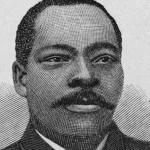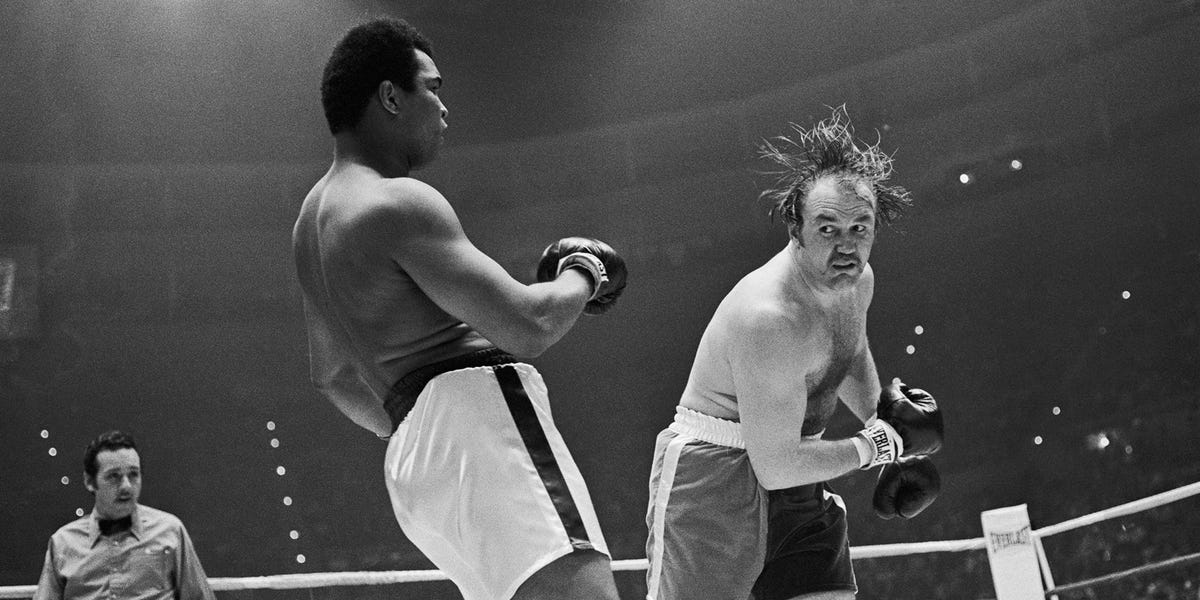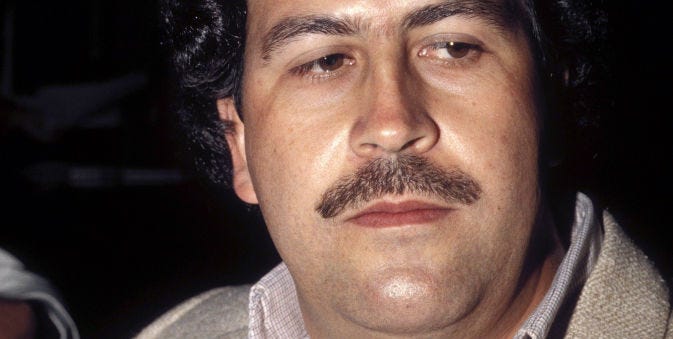Have you ever heard the story of the boxer who inspired one of cinema’s Most Iconic characters? His name was Chuck Wepner, and while he may not have been a champion in the traditional sense, his tenacity and grit earned him legendary status in the boxing world.
Wepner, nicknamed “The Bayonne Bleeder” for his ability to withstand punishment in the ring, hailed from Bayonne, New Jersey. He wasn’t born into privilege or surrounded by trainers from a young age. He was a blue-collar kid who fought his way up through the ranks, driven by a relentless spirit and a desire to prove himself. His story is a testament to the power of perseverance and the idea that even when the odds are stacked against you, anything is possible.
It’s this very spirit that captured the imagination of Sylvester Stallone. When Wepner shocked the world by knocking down the legendary Muhammad Ali in 1975, it sparked an idea in Stallone. Inspired by the real Rocky Balboa, Stallone penned the screenplay for what would become a cinematic masterpiece – “Rocky.” Wepner’s story became the blueprint for the underdog who refused to give up, forever etching his name into the annals of boxing and Hollywood history.
The Bayonne Bleeder: Early Life and Career
Chuck Wepner’s journey began in Bayonne, New Jersey, a working-class city where boxing served as both an escape and a path To Opportunity. His early life was far from glamorous. He grew up surrounded by the realities of blue-Collar Living, learning the value of hard work and resilience at a young age. It was in this environment that he discovered his passion for boxing, finding solace and purpose in the ring.
Wepner’s amateur career was marked by both triumphs and setbacks. He wasn’t always the most technically skilled boxer, but he possessed an unwavering determination and an iron will that made him a formidable opponent. He learned to fight with heart, absorbing punches and delivering his own with relentless aggression. This fighting spirit earned him the nickname “The Bayonne Bleeder,” a moniker that reflected both his ability to withstand punishment and his tendency to leave blood stains on the canvas.
His professional debut in 1964 marked the beginning of his ascent into the world of competitive boxing. He faced numerous challenges, battling seasoned veterans and rising stars alike. Despite facing setbacks and defeats along the way, Wepner never lost sight of his dream. He continued to hone his skills, learning from each experience and pushing Himself To Improve. His dedication and perseverance eventually paid off, leading him to bigger fights and greater recognition within the boxing world.
A Moment in History: Wepner vs. Ali
On March 24, 1975, the boxing world witnessed a monumental Clash Between Two Titans: Muhammad Ali, the reigning heavyweight champion, and Chuck Wepner, the underdog from Bayonne, New Jersey. The fight took place at Madison Square Garden, a legendary venue that had hosted Countless Historic Bouts. The atmosphere was electric with anticipation as fans poured into the arena, eager to witness this epic showdown.
While most boxing experts predicted a swift victory for Ali, Wepner entered the ring with an unwavering belief in himself and his ability to pull off the unthinkable. He fought with relentless aggression, landing powerful punches that shook the champion. In the ninth round, history was made. Wepner connected with a devastating right hook that sent Ali crashing to the canvas. The crowd erupted in stunned silence as the champion struggled to regain His Footing.
This brief moment of triumph for the real Rocky Balboa cemented Wepner’s place in boxing lore. Though he ultimately lost the fight by TKO in the fifteenth round, his resilience and ability to momentarily dethrone the seemingly invincible Ali captured the imagination of millions. This unexpected performance against one of the greatest boxers of all time would forever change Wepner’s life, paving the way for a new chapter filled with fame, recognition, and even a Hollywood adaptation of His Story.
 Granville T Woods Invention: The Black Edisons Revolutionary Impact
Granville T Woods Invention: The Black Edisons Revolutionary ImpactInspiration for Rocky: From Ring to Screen
The impact of Wepner’s fight against Ali reverberated far beyond the boxing ring. It reached the ears of Sylvester Stallone, an aspiring screenwriter who was captivated by the underdog story. Inspired by the real Rocky Balboa’s grit and determination, Stallone poured his heart into crafting a screenplay that captured the essence of Wepner’s Improbable Journey.
Stallone envisioned a film about an Ordinary Man Facing Extraordinary Odds, driven by a passion for boxing and a burning desire to prove himself. He saw in Wepner’s story a reflection of the human spirit’s ability to overcome adversity and Achieve Greatness Against All Expectations. The result was “Rocky,” a cinematic masterpiece that resonated with Audiences Worldwide, becoming one of the most beloved and iconic films of all time.
“Rocky” not only celebrated the underdog but also shed light on Wepner’s real-life struggles and triumphs. The film’s depiction of Rocky Balboa as an unassuming boxer from Philadelphia, striving for recognition and respect in a world dominated by champions, mirrored Wepner’s Own Experiences. While Stallone acknowledged Wepner’s influence, the story ultimately took on a life of its own, becoming a timeless tale of perseverance and hope that continues to inspire generations.
Legal Battles And Public Recognition
The success of “Rocky” brought both fame and controversy for Chuck Wepner. While the film catapulted him into the public eye, it also ignited a legal battle with Sylvester Stallone over unpaid royalties. Wepner believed his story had been directly used to create the character of Rocky Balboa and rightfully deserved compensation. He sued Stallone, arguing that the screenplay was based on his life and exploits in the ring.
The lawsuit garnered significant media attention, raising questions about intellectual property rights and the boundaries between inspiration and imitation. Ultimately, the two parties reached a settlement outside of court, although the exact terms remain undisclosed. Despite the legal complexities, Wepner’s story continued to resonate with Audiences Worldwide. He became a symbol of perseverance and an embodiment of the “real Rocky” spirit, inspiring countless individuals with his unwavering determination.
Wepner embraced his newfound fame, making numerous public appearances and sharing his experiences with fans. He even appeared in later “Rocky” films, solidifying his connection to the iconic franchise. Though he never achieved the same level of success as the fictional Rocky Balboa, Chuck Wepner’s legacy endures as a testament to the power of an underdog story and the enduring impact of one man’S Fight Against Adversity.
Legacy of a Resilient Fighter
Chuck Wepner’s story transcended the boxing ring, leaving an enduring legacy as a symbol of resilience and determination. His willingness to face formidable opponents, his ability to absorb punishment and Keep Fighting, and his refusal to give up even in the face of adversity resonated with audiences worldwide. He became a blueprint for overcoming obstacles, proving that even when faced with Seemingly Insurmountable Odds, courage and perseverance can pave the Way To Unexpected Triumphs.
While Wepner’s boxing career may not have reached the heights of some of his contemporaries, his impact on popular culture is undeniable. The film “Rocky” Immortalized His Story, cementing his place in cinematic history as the inspiration behind one of the most beloved characters ever created. Even today, the real Rocky Balboa, Chuck Wepner’s name evokes images of grit, determination, and the unwavering human spirit that refuses to be broken.
His life serves as a reminder that true success is not always measured by victories in the ring or on the silver screen, but by the courage to face challenges head-on and the inspiration we offer to others along the way. Wepner’s story continues to inspire generations of individuals to embrace their own inner strength and strive for greatness, no matter how daunting the odds May Seem.










